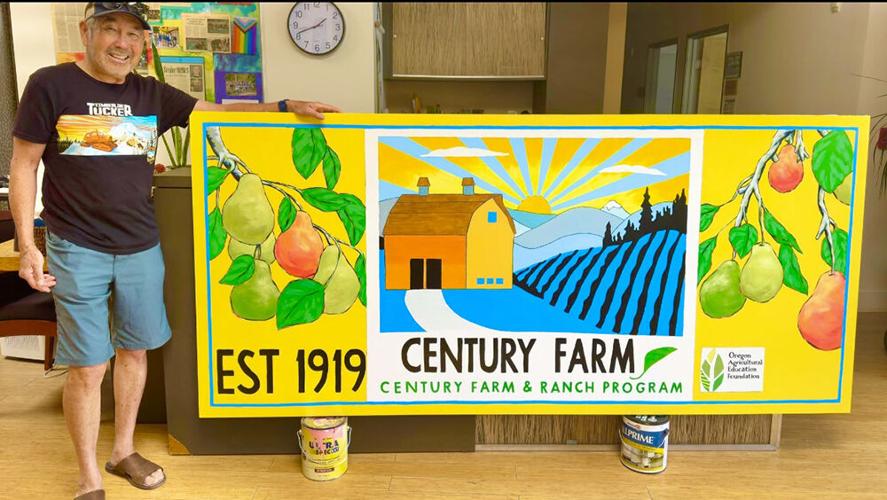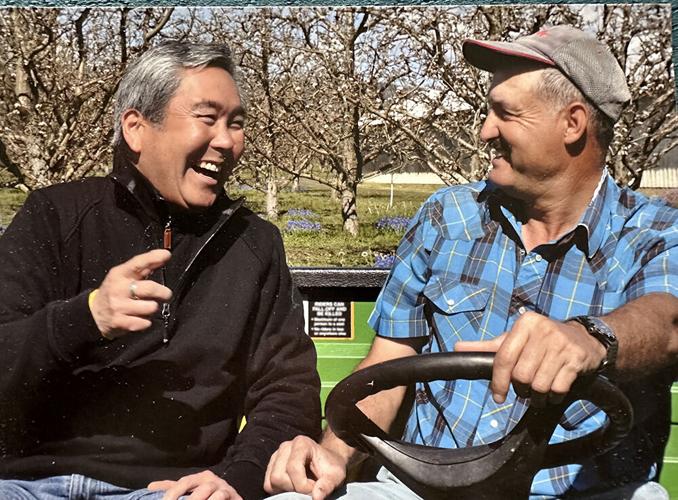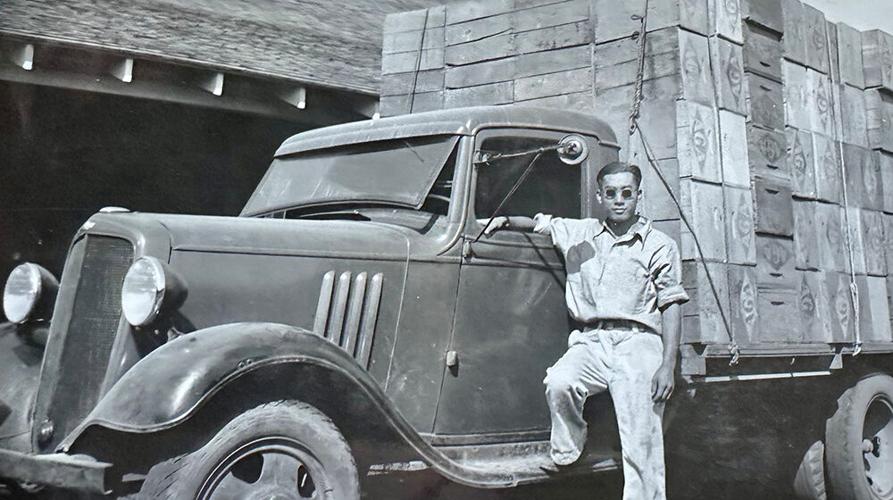By F. Martin Gibson
Columbia Gorge News
HOOD RIVER — The long, hard-working history of Sato Orchards earned a Century Farm Recognition this August at the Oregon State Fair, much to the pride of third-generation orchardist Gordon — also known as Gordy — Sato.
His family has maintained the orchard since 1919. Tadao Sato, his grandfather, came to Seattle from Nagano-ken, Japan, in 1904 and worked five years in Washington before moving to Parkdale in 1916.
Tadao and his wife, Shin, purchased the orchard to raise apples, pears, cherries and strawberries, plus five children.
While Tadao worked long days to support their children, Shin also worked as a Japanese language teacher in Parkdale. Their son, Ray, Gordy’s father, graduated from Oregon State College in 1938 with a horticulture degree.
Then, in World War II, the Sato family was incarcerated by the U.S. government. They were imprisoned first at the Pinedale Assembly Center, then Tule Lake internment camp in California.
“Looking at the photos during camp, they made the best of an awful situation,” Gordy wrote in an application earlier this year.
After the war, they were relocated to Cleveland, Ohio. Ray returned to his parent’s orchard — one of the first Nisei, or second generation Japanese immigrants, to do so. His parents returned in 1945.
“Dad was one of the first three Nisei back to the valley, along with [farmers] Sat Noji and Min Asai, who lived in the basement of my home, fearful for their lives,” Gordy wrote.
Racism surged in the valley after World War II, but the Satos’ neighbor, John Cooper, “took care of our farm as their own, and handed it back after the war.”
Japanese farmers “had to work twice as hard to prove themselves as worthy,” he said. “The work ethic that my dad instilled in me, was second to none.” Building a better future for their family, his parents tried to blend into the American way of life: they dressed Western, ate Western meals, and refused to teach young Gordy Japanese.
Ray married Dorothy Suguro in 1950, and took over operation of the orchard that same year. They built a house across the street and raised three children.
Ray got an Orchardist of the Year award from Hood River’s chamber of commerce in 1965. He then moved to focus on pears, grubbing out all the apple trees when a frost killed most of them.
All three children left the farm, but Gordy returned in 1995, working alongside his father and orchard foreman Ramiro Gutierrez.
“The biggest day in Tadao’s life was when he became an American citizen!” he wrote. In December 1971, Tadao was also awarded the Japanese Order of the Rising Sun in recognition of his service “bettering relations between Japan and the United States.” He passed away a year later, at age 86.
Gordy and Gutierrez now run the business his dad incorporated as Ray Sato Orchards Inc., and he remodeled his grandparents home.
“I never thought that I would end up as a farmer. However, I must say, it was the best decision I have ever made,” he wrote.
The orchards now hold seven varieties of pears, handpicked by people who come from Mexico on work visas through the H-2A program. “Pickers on a 12-foot ladder with 40 pounds of pears around their neck, all day long,” he said. “Tough work!”
Some workers have returned for eight seasons. But costs keep rising, and regulations tightening. This year, workers are limited to 48 hours a week instead of 54.
“Basically our costs have continued to rise, and the return to the grower has stayed the same,” Gordy said. “The small farmer may be disappearing to large corporate farms. Profitability is becoming harder and harder.
“I hope that my farm may transition at the right time to a younger, driven individual who can adapt to the changing conditions and continue the rich heritage that my family started 106 years ago, thru perseverance and determination.”
Well-known artist Michelle Yamamoto painted an 8-foot-wide sign to celebrate the Century Farm designation. “It’s a huge privilege to capture over 100 years of history on canvas,” Yamamoto posted.
Ray Sato passed away in 2009. “To this day, I think about my dad,” Gordy wrote in his application to the state fair. “That is one of the main reasons that I am applying for the Century Farm Recognition. To Honor my Grandfather & Father for persevering thru a tough climate ... to grow the best possible product [sic].”





















Commented